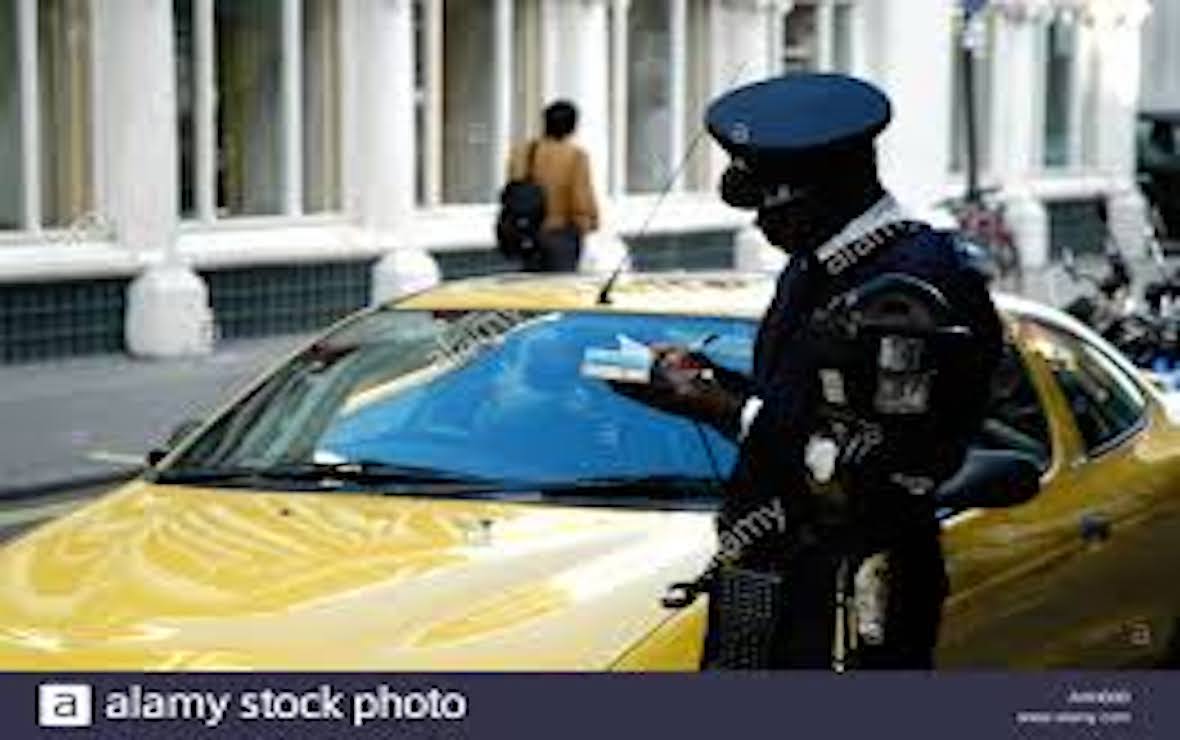In mid 1980’s Peter Wijesinghe of the Sri Lanka High Commission in London, who was classified under the ‘restricted immunity‘ category, was sent on an errand to the City of London on official duty. Usually Bandia has been performing such ‘mobile’ duties in the past by using the public transport, but on this day he decided to use his own vehicle to go to Central London and in doing so, he parked his car on a single yellow line in Central London.
Under normal circumstances majority of traffic wardens does not immediately pounce on a motorist to issue a penalty notice the very moment a vehicle is parked on a single yellow line and usually a grace period, say five minutes or so, is allowed to help the motorist either to run up to a shop for a quick purchase or any other urgent issue.
However, in this particular instance when Peter Wijesinghe returned to his vehicle he noticed a parking penalty ticket stuck on to his vehicle windscreen. He did not pay much heed to it as it had been the normal practice on such situations for the Protocol Officer at the High Commission office to return the relevant parking fine to the issuing office claiming diplomatic immunity under article 37 of The Vienna Convention on Diplomatic Relations with a request to cancel it.
Upon returning back to office, he explained his experience to the High Commissioner (A.T. Moorthy) with the fervent hope of getting the penalty notice cancelled as per the normal procedure adopted at the time by claiming diplomatic immunity.

However, the High Commissioner’s response being negative, he wrote to the penalty ticket office at Westminster Council personally claiming diplomatic immunity.
Since he did not receive any further communication from the Westminster Council, he assumed that the parking fine had been waved off as usual. But one fine morning a letter of demand from the Marylebone Magistrates Courts came as a bolt from the blue, demanding him to pay £5/- (parking fine) plus another £5/- as ‘costs’!
Obviously the Westminster Council had not accepted his personal appeal to waive the penalty charge off, but instead had referred ‘the non payment of the parking fine to Marylebone Magistrates’ Court where the case had been already taken up in absentia and arrived at the judgement of fining ‘£5 plus costs’.
Peter Wijesinghe at this stage approached the High Commissioner Moorthy once again and tried to explain the latest development on the parking ticket issue, but the determined High Commissioner would not shift an inch from his firm stance except requesting him to pay the enforced fine.
The distressed member of staff finally appealed against the Court decision, ‘on a matter of principle’, quoting the Vienna Convention on Diplomatic Relations and claiming immunity. The mistake he did was to address his appeal to the Metropolitan Police Commissioner instead of the Manager at Parking Penalty Office at Westminster Council.
In response to his submission to the Metropolitan Police Commissioner, the ‘defendant’ received a comprehensive questionnaire to complete and to be returned to the Metropolitan Police to consider his appeal. However, by taking the issue quite lightly, and consequently ignoring the police request, he managed to disturb the ‘ police hornet’s nest’ inadvertently, which prompted the Metropolitan Police Commissioner to file a case at the Knightsbridge Crown Court against him on charges of non-compliance; finally the victim was summoned to the Crown Courts at Knightsbridge.
In a nutshell, a simple case surrounding a parking penalty charge had gone too far and turned into a more complex legal issue when the High Commission staff, Peter Wijesinghe, was charged with ‘Non Compliance’, which was a criminal offence,as any law enacted by the British Parliament automatically becomes Queen Elizabeth II’s Order

Bandia had no option but to appear before three judges and a jury at Knightsbridge Crown Courts. He confronted bravely by appearing for himself without the assistance of any solicitors or engaging any Barristers. The only support defendant sought was a single witness, Shervon Wijeratne, the Protocol Officer attached to the Sri Lanka High Commission to prove his innocence.
The defendant, in his submission, explained to the Bench that he was ‘a member of the Service Staff’ (under ‘restricted immunity’) of Sri Lanka, which was a ‘receiving State and being apermanentresident in the UK’ thus qualified to enjoy the ‘immunity in respect of acts performed in the course of his duty under Article 33, of the Vienna Convention on Diplomatic Relations of 1961’.
The Protocol Officer Shervon Wijeratne’s assertion to the Judge and the Jury about the usual procedure adopted by the High Commission in such parking penalty cases finally helped the Presiding judge to declare the case as null and void and the defendant was acquitted.
This was a rare case, which has gone down in legal history in the UK as ‘Regina Vs. Peter Wijesinghe‘ where even the Foreign and Commonwealth Office studied it as a test case.
“Wise men speak because they have something to say; fools because they have to say something.” – Plato
Pic Credit: Google and Peter Wijesinghe






